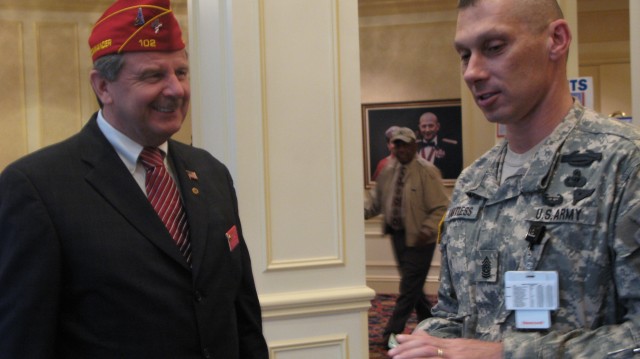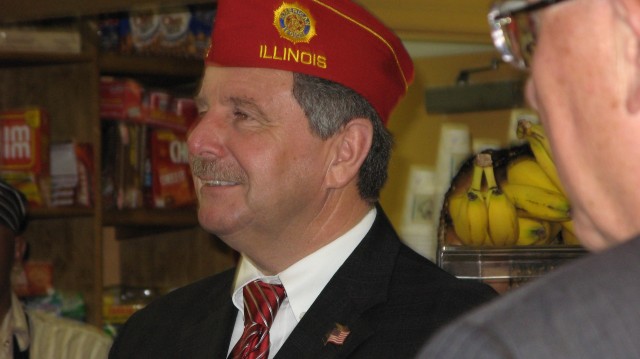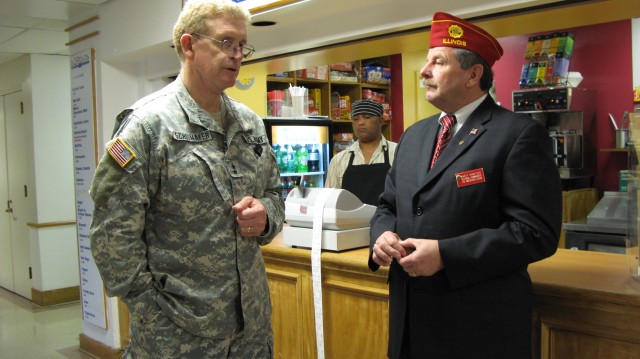WASHINGTON (Army News Service, Nov. 1, 2007) -- During his first visit to Walter Reed Army Medical Center Oct. 24, the national commander of the American Legion discussed the transition of warriors from military to other medical care.
Martin F. Conatser, elected commander of the nation's largest veteran's organization Aug. 30, voiced his concern over the transition process for a Soldier from the Army to Veteran's Affairs.
North Atlantic Regional Medical Command and Walter Reed Commander Maj. Gen. Eric B. Schoomaker told Mr. Conatser that they share the same goal, "We want to keep it fluid and make sure there is never a loss of support."
"We use the term Warrior in Transition because whether you are ill or injured, you are in a major transition in your life," Maj. Gen. Schoolmaker said. "There, of course, is a distinction between a war injury and an illness... but to us, it doesn't matter if it's from an enemy or elsewhere - we'll take care of you."
Mr. Conatser explained his goal was to "get up to speed" on the improvements being made in outpatient care. The retired sergeant major toured the living accommodations for outpatients and received briefings from the Warrior Transition Brigade and the Physical Evaluation Board. He also visited with Soldiers and toured the Mologne House.
"It's veterans helping veterans. No matter what the injury this is probably the hardest time in their lives," Mr. Conatser said. "Many of us have shared the same experience and know the frustration that can come with it."
He explained that American Legion members - 2.7 million - and posts throughout the country are assisting Soldiers any way they can and will continue to do so. Walter Reed has a full-time American Legion veteran's advocate, Jerry Johnson, to assist Warriors in Transition any way he can. Mr. Conatser said he plans on monitoring and following up on the care but feels reassured by the visit.
"It looks like it's quality health care and the Soldiers here feel they are getting quality healthcare," he summed up.
With the advances in military medicine, there are Soldiers who would not have been able to remain on active duty before, but now have the opportunity to continue their military career. Maj. Gen. Schoomaker compared them to professional athletes, who know that the Warrior Ethos of "never quit" still applies.
(Kristin Ellis writes for the Stripe newspaper at Walter Reed.)






Social Sharing